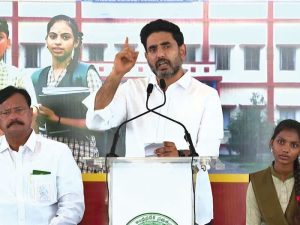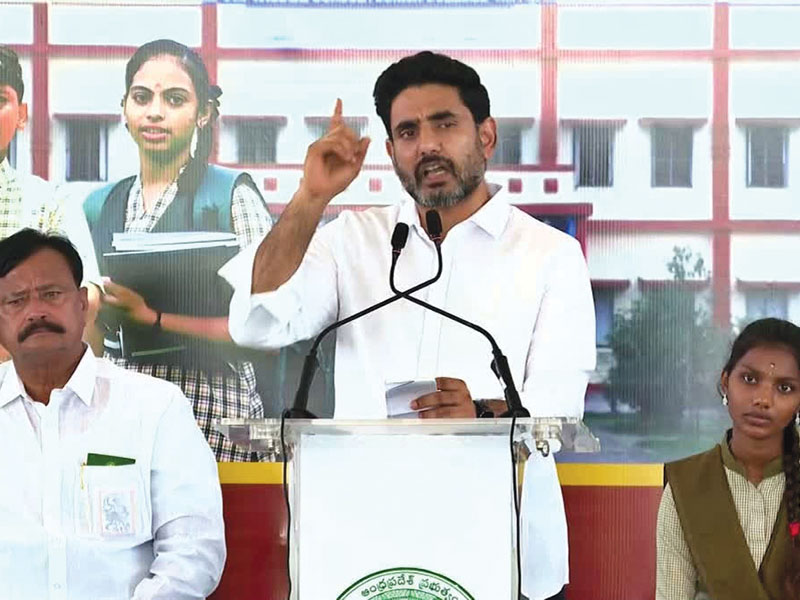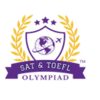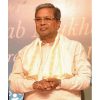Andhra Pradesh: Unprecedented PTM
Priyanka Edupuganti (Hyderabad)

PTM 2.0 mastermind Nara Lokesh
The telugu desam party (tdp) led by four-term chief minister Chandrababu Naidu which was swept back to power in Amravati — the fast rising city under construction to serve as the state’s admin capital — in Andhra Pradesh last year, seems hell-bent on transforming AP (pop.54 million) into India’s most literate and well-educated state.
For one, despite its bitter rivalry with the opposition YSR Congress party which ruled the state from 2019-24, TDP hasn’t reversed the YSRC administrative fiat decreeing English (aka Inglish) as the medium of instruction in classes I-VI in all government schools statewide. Despite the AP high court striking down this decree as being contrary to the National Education Policy (NEP) 2020, the TDP government (which has appealed the high court verdict) has persisted with publication of bilingual textbooks to ease the transition to English as the medium of instruction in all public primary-secondary schools. Moreover, the TDP government has accepted the three language formula — rejected by most South India states — which encourages children to learn Hindi, the dominant language of the populous Hindi heartland states. These enlightened policies are likely to transform AP into India’s most well-educated state by 2030.
To signal its serious intent to sharply upgrade K-12 education, on July 20 the TDP government convened a statewide synchronised mega Parent-Teacher Meeting (PTM) 2.0 in which 22 million parents, students, teachers and public representatives participated to discuss and debate ways and means to strengthen parent-school partnerships; promote transparency and accountability; facilitate holistic student development; raise child well-being awareness and promote life skills through co-curricular education.
“PTM 2.0 wasn’t a mere festive conclave. Our prime objective was to discuss how to make school managements accountable for children’s academic progress and well-being and to place parents at the centre of children’s learning journey,” says an education ministry official.
By all accounts PTM 2.0 held simultaneously in cities, towns and rural habitats statewide, was a great success. “I haven’t witnessed so many male parents at a PTM before. This event attracted community participation on grand scale,” says the headmistress of a government school in Chittoor district. “It’s not easy to get millions of parents to discuss education and related issues. PTM 2.0 has generated great awareness of the importance of schooling for upward mobility, and has stimulated the community-based monitoring of education,” remarks Dr. M. Sudha, a Guntur-based education researcher.
TDP leaders are delighted with the outcomes of PTM 2.0. Education minister Nara Lokesh stated: “Never before in Indian history have simultaneously PTMs been held statewide on one day. PTM 2.0’s record attendance of almost 23 million parents, teachers, community leaders and students has generated unprecedented interest in public education. Parental involvement and their cooperation with school managements is certain to improve learning outcomes in government schools.” An alum of America’s top-ranked Carnegie Mellon and Stanford universities, Lokesh master-minded and orchestrated PTM 2.0.
Chief minister Chandrababu Naidu also expresses satisfaction with the smooth synchronisation and outcomes of PTM 2.0. “Our message to parents is that instead of bequeathing land, property and money to children, endow them with the more valuable gift of education. It will ensure their prosperity and upward social mobility,” said Naidu.
For decades the southern state of Kerala (pop. 39 million) has enjoyed the status of India’s most literate state. With Chandrababu Naidu widely acknowledged as the country most go-getting private industry and education champion back in charge, Kerala’s status is endangered.
Also Read: Andhra Pradesh: CBN’s bold initiative

















Add comment